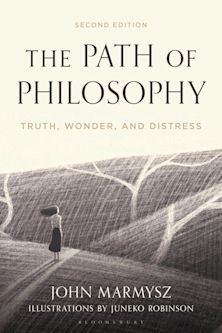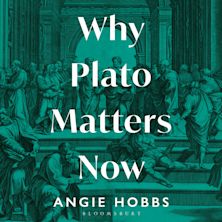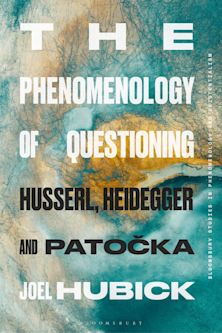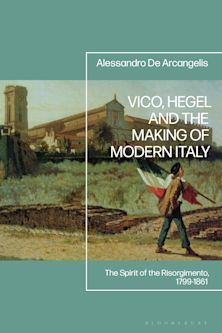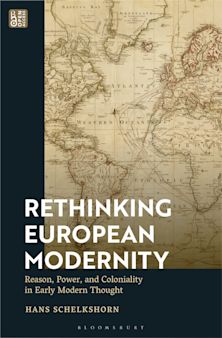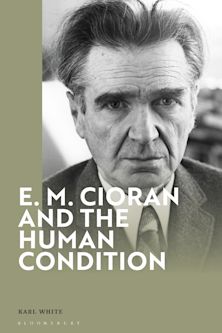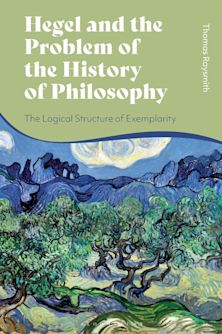- Home
- ACADEMIC
- Philosophy
- History of Philosophy
- Public Philosophy and Political Science
Public Philosophy and Political Science
Crisis and Reflection
E. Robert Statham Jr (Anthology Editor) , George W. Carey (Contributor) , James W. Ceaser (Contributor) , Michael A. Gillespie (Contributor) , John Gueguen Jr (Contributor) , Manfred Henningsen (Contributor) , Theodore J. Lowi (Contributor) , John Marini (Contributor) , Edward B. McLean (Contributor) , Larry Peterman (Contributor) , David Ricci (Contributor) , Steven B. Smith (Contributor) , E Robert Statham Jr (Contributor)
Public Philosophy and Political Science
Crisis and Reflection
E. Robert Statham Jr (Anthology Editor) , George W. Carey (Contributor) , James W. Ceaser (Contributor) , Michael A. Gillespie (Contributor) , John Gueguen Jr (Contributor) , Manfred Henningsen (Contributor) , Theodore J. Lowi (Contributor) , John Marini (Contributor) , Edward B. McLean (Contributor) , Larry Peterman (Contributor) , David Ricci (Contributor) , Steven B. Smith (Contributor) , E Robert Statham Jr (Contributor)
This product is usually dispatched within 3 days
- Delivery and returns info
-
Free CA delivery on orders $40 or over
You must sign in to add this item to your wishlist. Please sign in or create an account
Description
The crisis of western civilization is a crisis of public philosophy. This is the charge of Public Philosophy and Political Science, a stunning new collection of essays edited by E. Robert Statham Jr. Vividly cataloging the decay of the moral and intellectual foundations of civic liberty, the book portrays a generation of Americans alienated from institutions built on public philosophy. The work exposes the failure of America's political scientists to acknowledge and understand this alarming crisis in the American body politic. The distinguished contributors examine the evolution of public philosophy; the inextricable relationship between politics and philosophy; and the interplay between public philosophy, the constitution, natural law, and government. They reveal the dire threat to deliberative democracy and the fundamental order of constitutional society posed by public philosophy's waning power to refine, cultivate, and civilize. The work is an indictment of a society which has discarded a way of life rooted in natural law, democracy and the traditions of civility; and is a denunciation of an educated elite that has divorced itself from the standards upon which public philosophy rests. It is essential reading for philosophers and political and social scientists seeking to resurrect the standards of American public life.
Table of Contents
Chapter 2 American Public Philosophy After the Cold War
Part 3 Traditionalist Perspectives
Chapter 4 On the Degeneration of Public Philosophy in America: Problems and Prospects
Chapter 5 A Public Philosophy: Dangers, Possibilities, and Probabilities
Part 6 Political Philosophy and the Public: Skepticism v. Optimism
Chapter 7 The Public Philosophy and the Limits of Philosophy
Chapter 8 The Political Philosopher and the Public Sphere
Chapter 9 Plato and the Modern Escape from Political Responsibility
Part 10 The Political Science Discipline
Chapter 11 Political Science and Political Philosophy: An Uneasy Relation
Chapter 12 The Tragedy of Political Science: Science and the Moral Foundations of Democratic Order
Chapter 13 The State in Political Science: How We Became What We Study
Part 14 Public Philosophy, American Constitutionalism, and Political Science
Chapter 15 Constitutionalism, the Public Philosophy, and Political Science
Chapter 16 The American Crisis of Public Philosophy and Political Science as a Discipline
Product details
| Published | Jan 24 2002 |
|---|---|
| Format | Paperback |
| Edition | 1st |
| Extent | 250 |
| ISBN | 9780739102947 |
| Imprint | Lexington Books |
| Dimensions | 230 x 147 mm |
| Publisher | Bloomsbury Publishing |
About the contributors
Reviews
-
A provocatively diverse collection of deeply thoughtful responses to the twin crises of our disintegrating public philosophy and our intellectually floundering political science. Walter Lippman's famous warning meditation is updated, vindicated, and made the starting point for instructive and potentially galvanizing recommendations for a wholesale redesign of political science education and research agendas.
Thomas L. Pangle, University of Texas at Austin
-
E. Robert Statham Jr has brought together a diverse and interesting array of perspectives on the relation between the current 'crisis of public philosophy' and the discipline of political science. Commentators who question contemporary political 'science' from the 'outsider' perspective of classical political philosophy or natural law rub shoulders with others who emphasize, in different ways, the failure of political scientists to make an effective contribution to the renewal of public philosophy. Anyone who wishes to reflect seriously on this ongoing 'crisis' needs to confront the questions raised so well in this volume.
Christopher Wolfe, Marquette University












